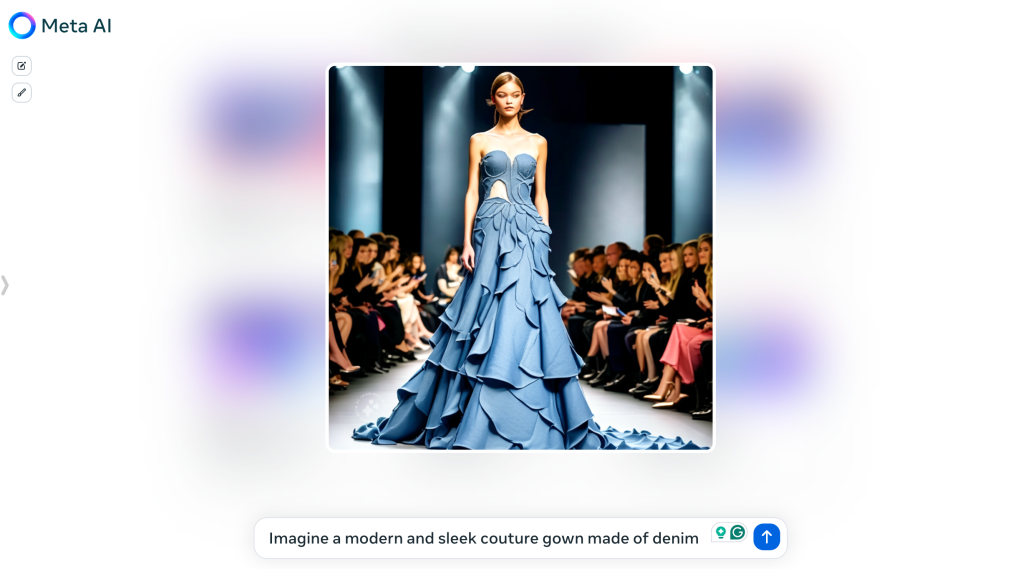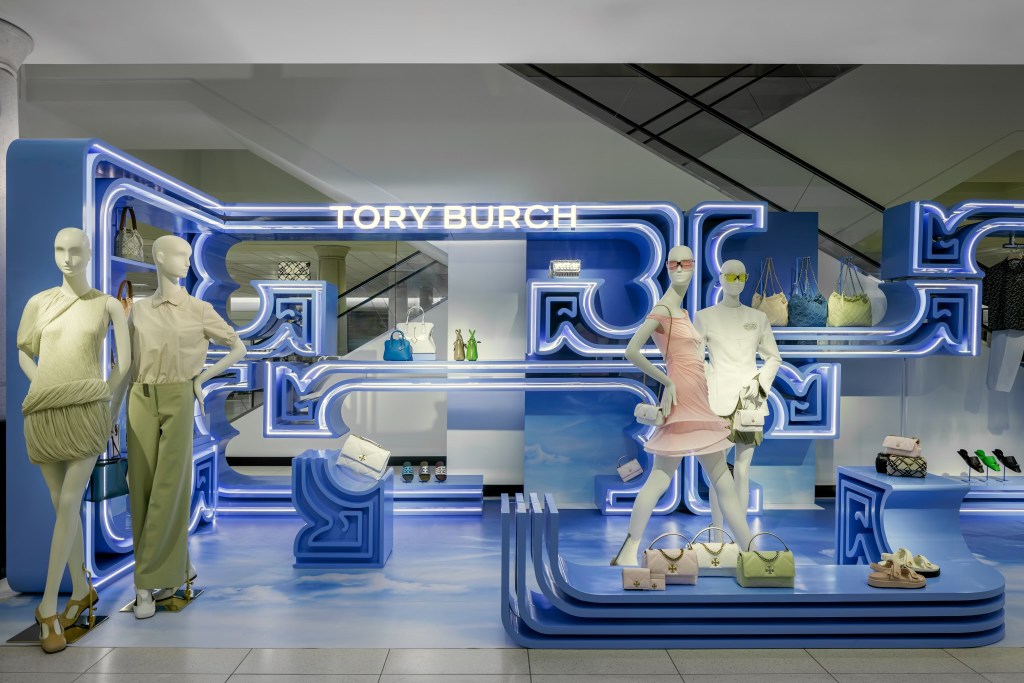All-denim couture? A luxury designer space suit? The retail experience of the future?
Pictures of anything that can be imagined can be made in a moment’s notice with generative AI.
And while that’s been true for a while, it’s a trick that’s suddenly becoming much more available to everyday shoppers and social scrollers who, thanks to a few new tweaks from tech giant Meta, can readily make and share images of their flights of fancy.
Meta unveiled the Imagine Feature this week, a novel test capability for WhatsApp that lets people create images with the Meta AI bot. Users type in prompts and watch the visuals morph at every few keystrokes.
“From album artwork, to wedding signage, birthday decor and outfit inspo, Meta AI can generate images that bring your vision to life faster and better than ever before,” according to the company. “It’ll even provide helpful prompts with ideas to change the image, so you can keep iterating from that initial starting point.”

Users can enjoy the output, however realistic or fantastical, or share them.
Fashion is obsessed by AI — looking to put the technology to work on everything from e-commerce and customer service to supply chain and purchasing.
But the next new thing could also prove to be a tidal wave as AI images start showing up everywhere and look better.
Meta said its generative AI images are sharper and higher quality now.
The immediate effect of building this type of tool and releasing it to the public free of charge is that it takes down a significant barrier to AI. People can use the Imagine Feature to create, edit, transform and even animate images, turning them into GIFs, in an app they already use.
There’s also an upside for brands, and it goes beyond merely tracking the looks people make and share. In the hands of a crafty executive or marketer, brands have a simple way to test out ideas and see which ones get traction before they have to flesh out a concept or create a prototype.

Meta isn’t monetizing the feature for now. The whole point seems to be to showcase how advanced — and speedy — Meta AI has become.
Other parts of Meta’s announcement seem to be directly targeting Google on its AI-powered search turf. “You can access real-time information from across the web without having to bounce between apps,” the company crowed.
To make that viable, the bot needs to be readily accessible in a lot of places — and so it’s spreading out across the whole family of apps and beyond. The bot can be found in the search functions of Facebook, Instagram, WhatsApp and Messenger; via voice in its Ray-Ban Meta smart glasses and eventually Meta Quest, and it launched online through the new Meta.ai website. It’s also in the Facebook feed.
Google has been developing and championing AI for years, but it has picked up the pace as newer forms, like genAI, have boomed over the past year and a half. Many of its efforts have targeted shopping and, at times, specifically fashion with last year’s virtual apparel try-ons and its latest Style Recommendations feature. Maria Renz, vice president and general manager of commerce, told WWD the search giant was excited about partnering merchants with its “cutting-edge technology” and “evolve shopping from a transactional experience to one that’s really immersive, inspirational.”
Many of the tech giants have the same thought. From Snapchat to Amazon, big tech is using AI to enhance augmented reality try-ons to launch their own chatbots or shopping assistants.
And the field looks jam-packed when the view is expanded to include retailers like Walmart, a Microsoft Azure partner that launched genAI-powered search functionality at CES, and Target with its AI-powered personalized shopping experience.
This AI arms race could come down to whoever makes this tech the most accessible. If Meta AI and its Imagine Feature are as fast and friendly as Meta claims, that could be a good start. Fashion’s just going to figure out how to capitalize on all those fanciful images, some bearing marks of their own brands.



